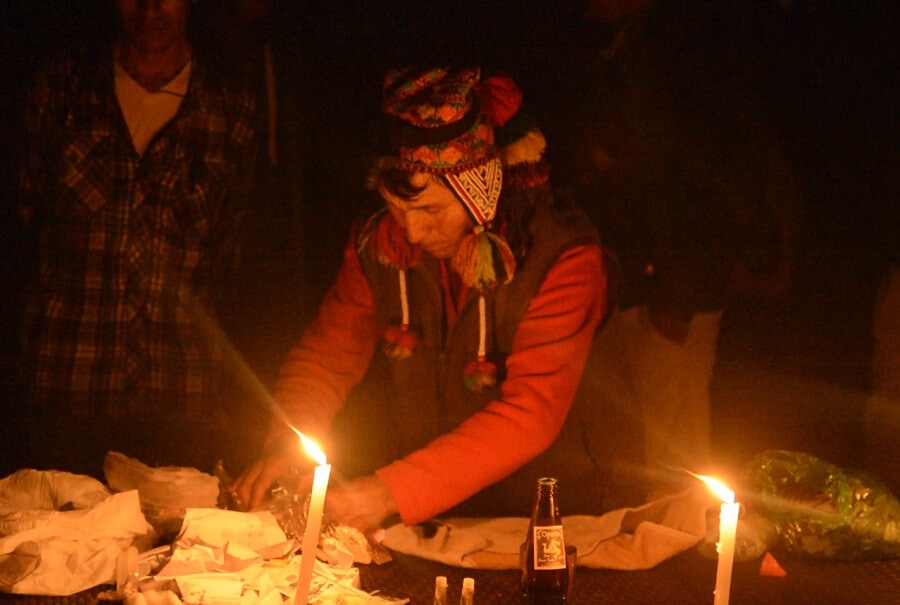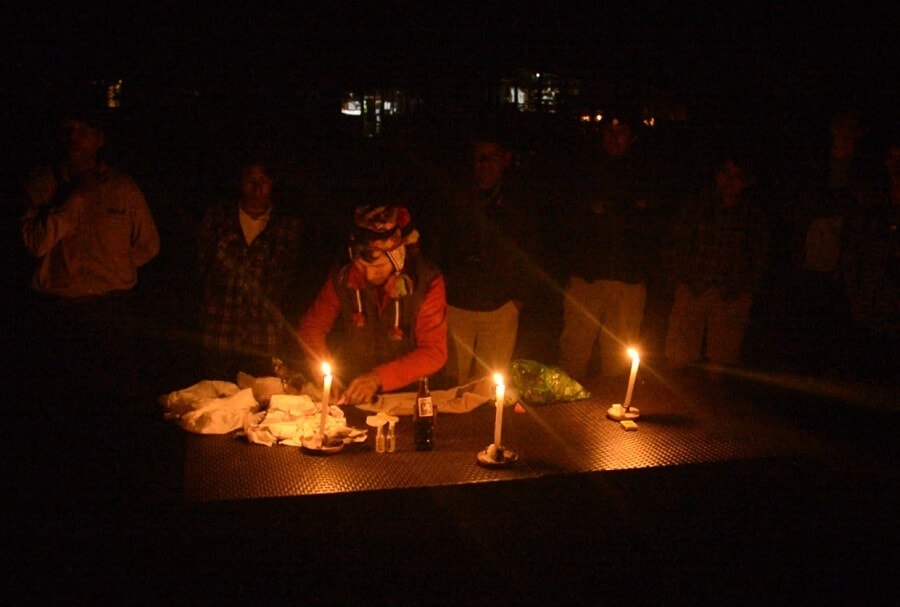This week we welcomed shaman, Pablo Cruz Quispe, to the Manu Learning Centre (MLC) to bring in the New Year that’s celebrated by Quechuan indigenous people every August.
Standing beneath the stars in front of a table covered in sweets and coca leaves, the softly spoken shaman begins his ceremony.
Pablo gives thanks to the sun, the moon, the water and the soil – the key elements for life.
We’ve formed a semi-circle around him and listen in silence against the hum of the Amazon Rainforest, as the Alto Madre de Dios river snakes passed us and we’re hugged by a wall of forest. The word’s of the shaman resonate.

His speech is translated from Quechua to Spanish and then from Spanish to English, so that all the tourists, volunteers and staff from across the world can understand and appreciate the experience.
Pablo is wearing a brightly patterned hat that covers his ears and is adorned with two woollen bobbles – a typical Andean style that protects against the mountain cold, but looks at odds here in the jungle, despite the cold front that’s just swept in bringing a freshness to the night’s air.
One by one, we make our wish for the upcoming year and we approach the shaman for a blessing of good fortune, health and happiness.
All of us, from our Peruvian staff members to our international volunteers, are away from our families so during the blessing many of our thoughts are with them.
At the same time, we’re reminded of what has brought us here together: a deep appreciation and respect for our natural world.

As the shaman wishes a successful New Year for the Crees Foundation, we hope that we can build on our work here in Manu Biosphere Reserve.
We hope that the micro-enterprises that we’re helping local people set-up will flourish and thrive, improving the livelihoods and living standards of poor communities.
We hope that our research will continue to prove the biodiversity and conservation value of regenerating forest, helping inform conservation strategies for the protection of Manu’s threatened rainforest and wildlife.
We hope we can reach more people through environmental education to improve understanding of local and global issues, inspiring action for our natural world.
We give thanks for the opportunity to live and work in one of the most biodiversity rich places on Earth.
We appreciate our role in it’s future protection.
